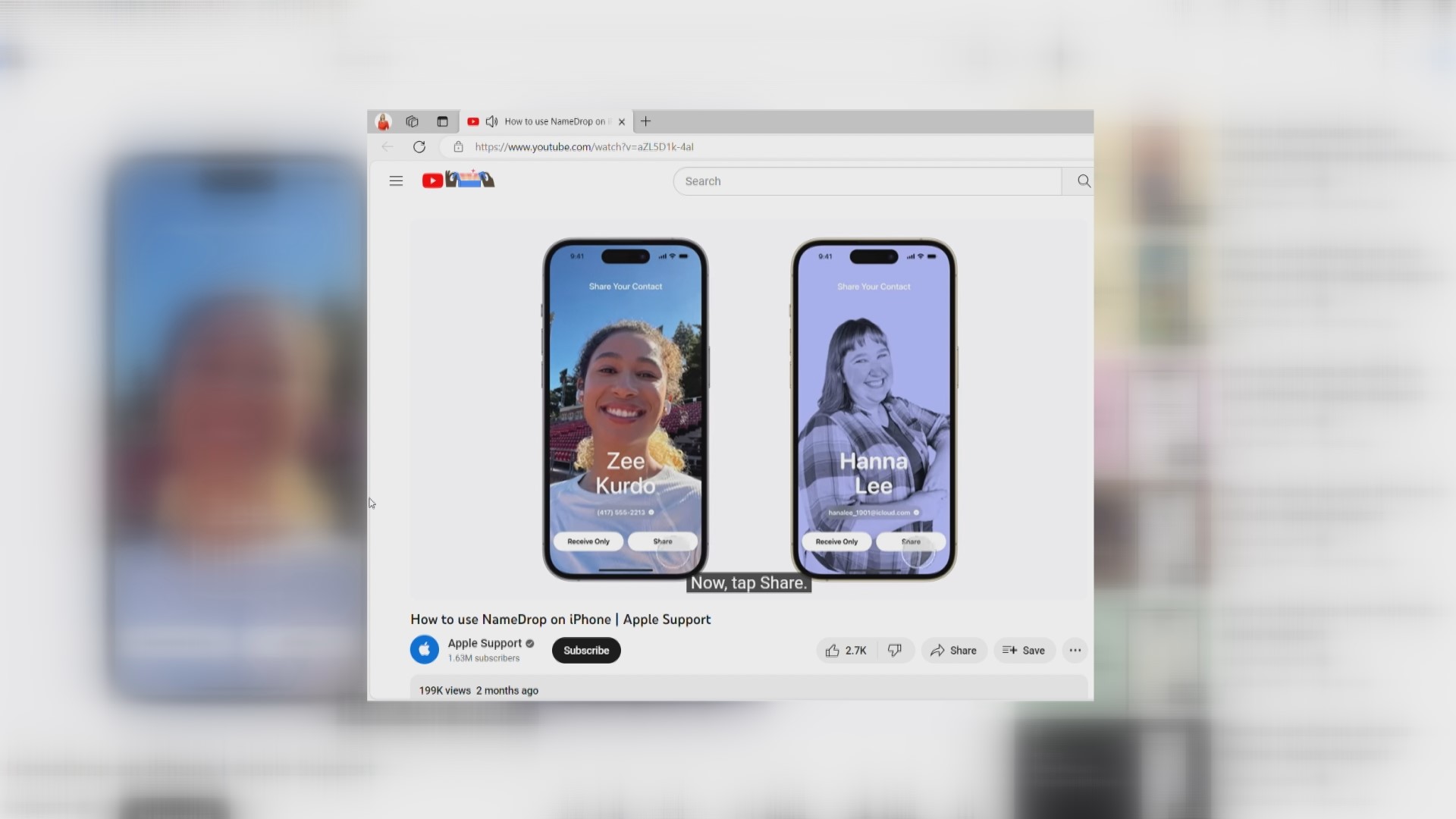JACKSONVILLE, Fla. — A new iPhone feature is raising privacy concerns, and even local law enforcement agencies, including the Kingsland and St. Augustine Police Departments, are warning users to turn off NameDrop.
It comes with the new IOS 17 update and allows two iPhones in close proximity to exchange contact information.
THE QUESTION
Can an iPhone user download your contact information via NameDrop just by being close to you and your iPhone?
THE SOURCES
THE ANSWER
No, the new iPhone feature will not share contact information without your permission.
WHAT WE FOUND
An Apple spokesperson says the company designed NameDrop only for users to share information with intended recipients. No contact information is automatically shared when two devices are brought together without a user taking action.
It also doesn't work unless your phone is unlocked.
iPhone users have to hold the top ends of their smartphones together within a few centimeters for an exchange of information to take place and then accept it.
Both devices will vibrate and show a glow from the top of the display to clearly indicate that a connection is being made.
You’ll see a contact card pop up on your device and then you can tap “share” or “receive only.” If you choose “share,” your contact information will be sent to the other device.
You can end the transaction by tapping “done” in the corner of the screen.
Contact sharing is canceled if the smartphones are moved away from each other. If you don’t tap on either option, no contact information will be shared.
OneRep Vice President and cybersecurity expert Mark Kapczynski said it's not the scary feature some social media users are making it out to be.
"You're not going to walk by someone and magically suck all their data out of their phone or something worse," he said. "It's definitely a secure protocol for how to exchange information. You have to be extremely close to one another to do this in the first place."
Kapczynski said it's understandable people are skeptical since the feature is new, but there's no reason to turn off the feature.
“Everything has to be done with permission, so it’s not just blindly sending information, but it’s a great, easy way for people to share information and do it under their full guidance and control.”

